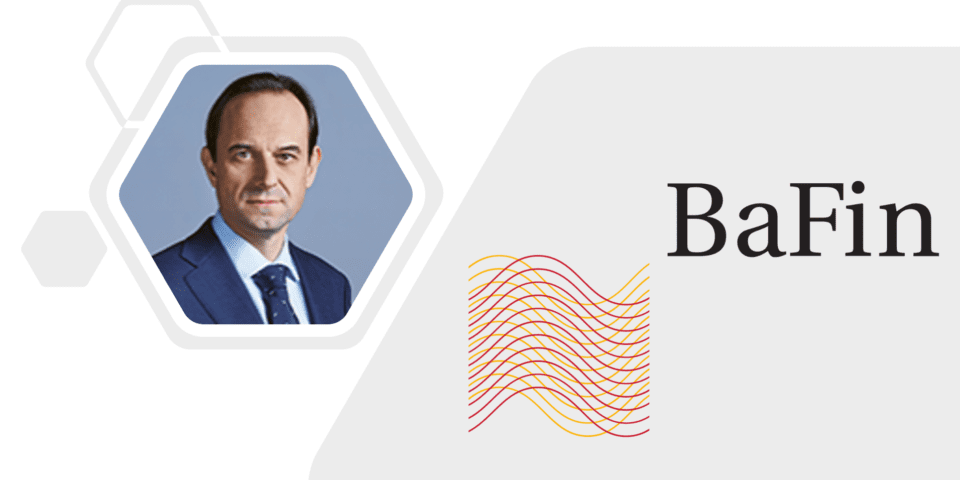By Dan Byrne for AMLi
THE GERMAN FINANCE WATCHDOG BaFin has convinced the current head of Switzerland’s market regulator to take over as its new president.
Mark Branson, who has served as CEO of the Swiss government agency FINMA since 2014, will join BaFin after the current head Felix Hufeld finishes his tenure at the end of the month.
The news is the latest development for the agency, which seeks to revamp its internal management and restore confidence in its reputation following the PR disaster that was the Wirecard scandal.
“Trust in Germany’s financial centre is important and BaFin is a key factor in that trust,” said German Finance Minister Olaf Scholz.
He promised that Branson – with many years’ experience in both regulation and banking – would give the agency “more bite”.
The move to bring in fresh eyes at the top level was welcomed by Swiss lawmaker Rudolf Strahm, who praised Branson personally despite criticising the environment he was coming from.
“Regulation, whether of money laundering of banks, is weak in Switzerland,” he told Reuters Tuesday, but he also stressed that Branson wasn’t the cause of this.
“He was the strictest boss of the regulator that we have seen in Switzerland. But he did not have the support of the country’s politicians.”
BaFin will likely hope that Branson’s tenure will outperform that of his predecessor Mr Hufeld, who has come under criticism for perceived failings in relation to the Wirecard scandal.
The payments company collapsed in mid-2020, alongside the resignation and arrest of former CEO Markus Braun, and the disappearance of its COO Jan Marsalek, who remains a wanted man by German federal police.
The company’s fortunes began to unravel in early 2019 when whistle-blower reports of wrongdoing surfaced in the Financial Times. Its ultimate demise came when it was revealed that around €1.9BN in previously claimed assets was in fact “missing”.
BaFin’s handling of the case has been sharply criticised as lax, with even Hufeld himself admitting that the ordeal was a “complete disaster”.
In November 2020, the European Securities and Markets Authority (ESMA) criticised the agency in a peer review.
The biggest issue, it said, was the lack of a proper internal control system that designed to overcome conflicts of interest within the organisation.
It also called out deficiencies in market monitoring, independence from government, examination procedures and the effectiveness of its supervisory system.
The German Finance Ministry has since given the agency more powers of inquiry and investigation to try and prevent a Wirecard-style recurring.
Share this on:
Follow us on:








